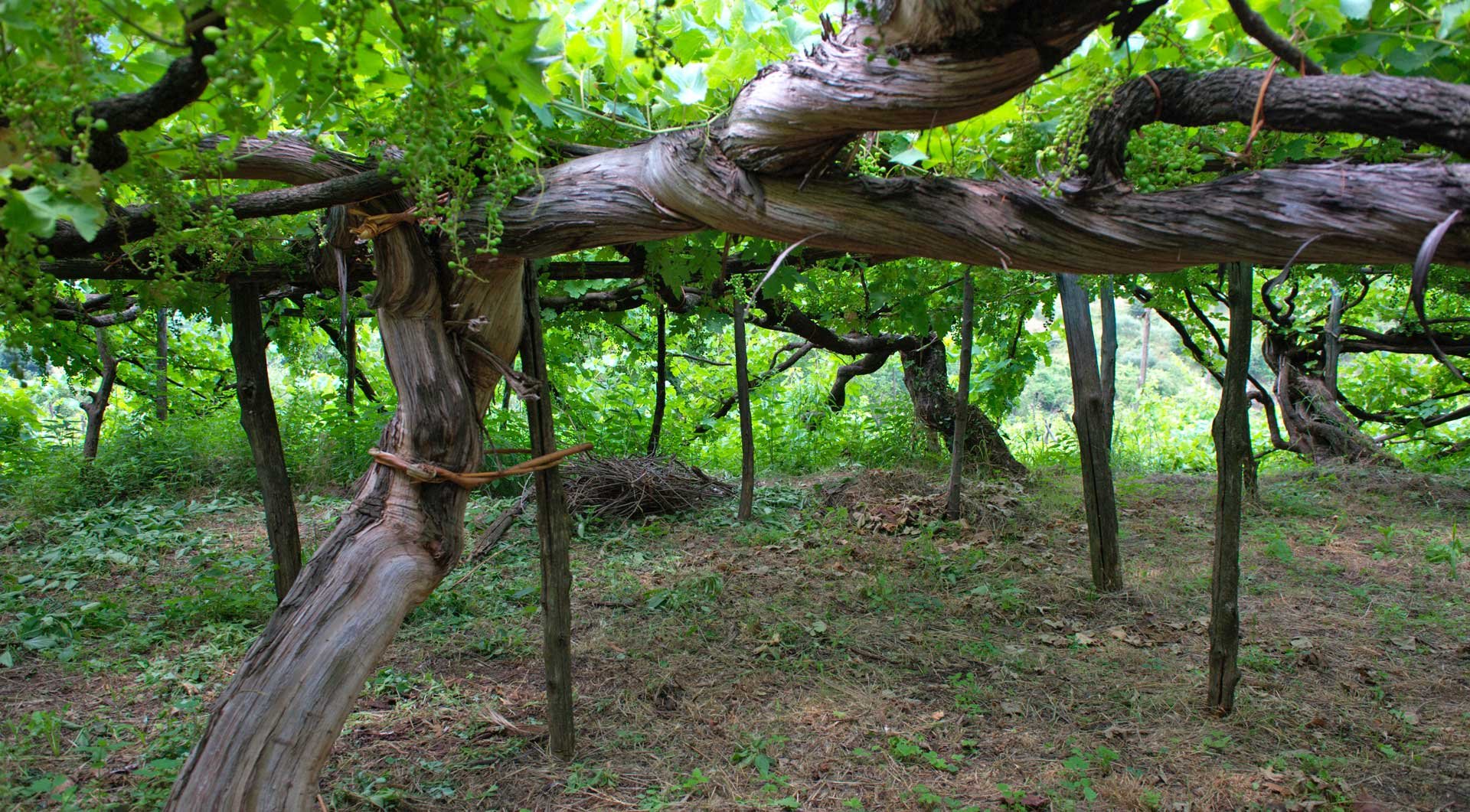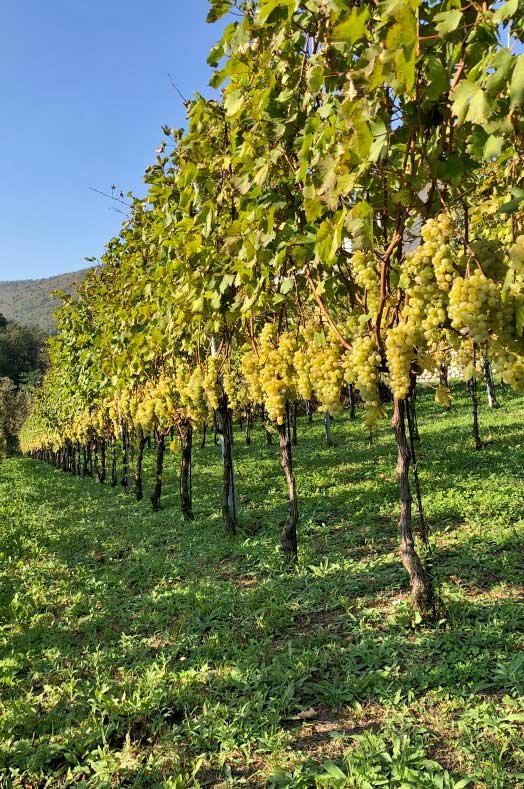Situated on the stunning Sorrentine Penninsula, where the Lattari Mountains meet the sea along the Amalfi coast, the viticulture of Tramonti lives up to its dramatic setting. Over the millennia the looming, active volcano Vesuvius has given birth to fertile slopes and valleys where ancient vines have thrived among lemon and olive groves on steep terraces. The volcano has been a force of destruction but also of protection, Here, the infamous phylloxera pest that ravaged most of Europe’s great wine regions is held at bay; they do not like the PH levels of the area’s volcanic and sandy soils. The area has also been relatively isolated until the 20th century, which has left the hills of Tramonti with a strong, unique cultural legacy and importantly, invaluable, treasured pre-phylloxera vineyards planted to indigenous grape varieties on ungrafted roots. Some of the oldest grape vines in the world exist here. The town of Tramonti itself has been designated a UNESCO World Heritage Site.
In 2004, four local vine growers, Gaetano and Generoso Bove, Vincenzo D’Avino and Luigi Giordano founded Tenuta San Francesco in order to preserve the long-standing viticultural tradition of the region and of their families’ past. The winery is set in the 18th-century family estate, among the hillsides. It’s cooler here than in many other places in Campania with frequent breezy maritime winds that act as a natural force against many typical vine diseases and pests and allow for organic viticulture. The Bove and D’Avino and Giordano families have about 14 hectares of vines among the steep, craggy hillsides. About 8 hectares are planted to very old, pre-phylloxera vines of the area’s famous Tintore, as well as Aglianco and Piedirosso. There are also old vines of indigenous white grapes; Pepella, Ginestra, Biancazita, Biancatera, Falanghina and Biancolella. All the vineyards are characterized by high density planting and situated on steep sloped terraced lands between 200 and 600 meters above sea-level. Great attention is paid to the preservation and the protection of the environment, in accordance with the regional plans for the reduction of the use of phytochemicals; Tenuta San Francesco uses ancient and natural techniques in their vineyards and in the cellar. A passionate dedication to preserving the ancient vines and their connection to their local culture and cuisines is the guiding force of Tenuta San Francesco. A word that often comes up when describing their viticulture is heroic.








